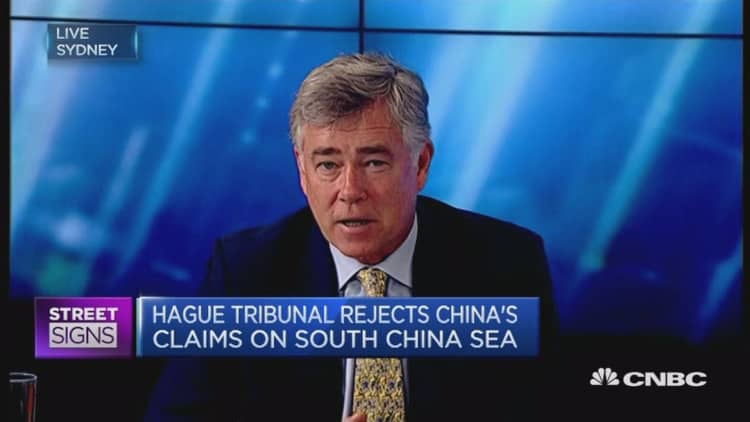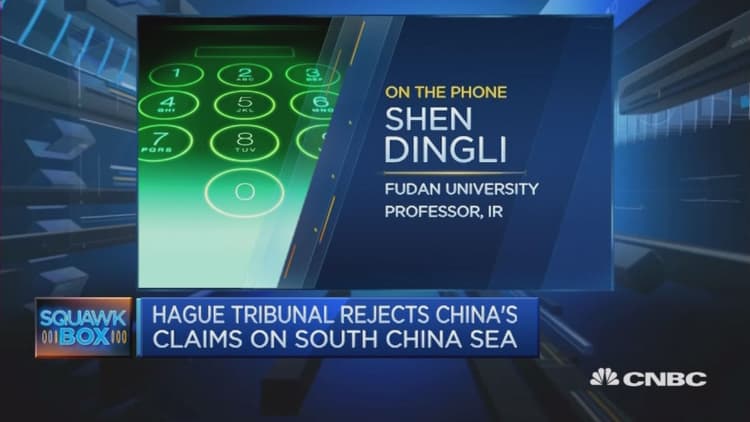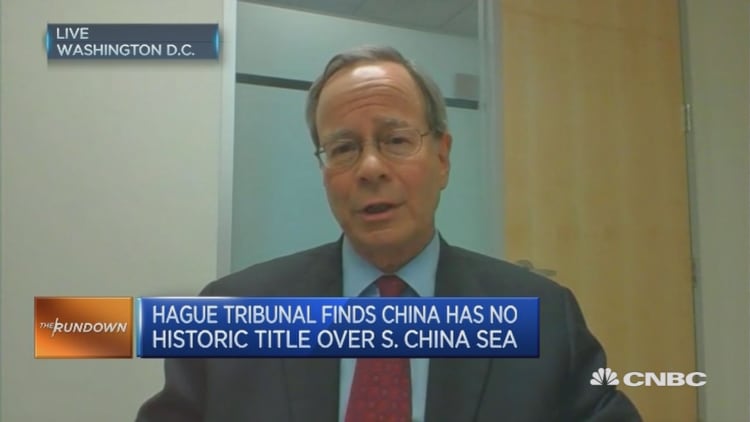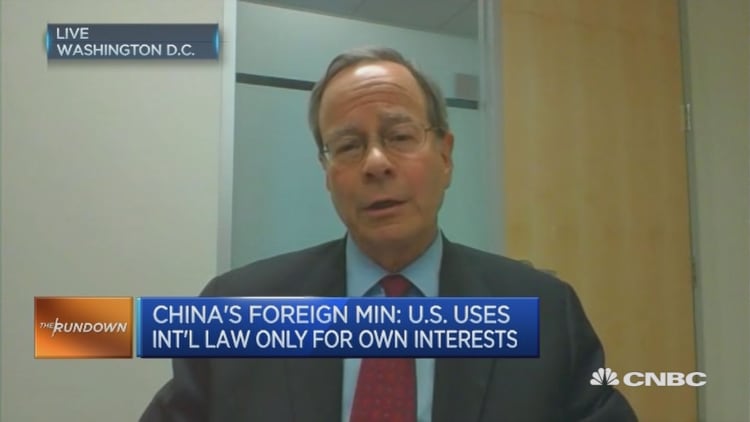



Having already wound the populace up to fever pitch with a barrage of nationalist propaganda, China was expected to pull out the rhetorical big guns when it reacted to The Hague's decision on rights to the South China Sea.
And it didn't disappoint. Barely 50 minutes after a tribunal at the Permanent Court of Arbitration (PCA) in the Netherlands ruled that China had no claim to the valuable region, the People's Daily had published an editorial headlined: S. China Sea Arbitration: A U.S.-led conspiracy behind the farce.
The editorial criticized the U.S. for four major "wrong-doings": colluding with its allies to "rubbish China," showing off its military force and putting pressure on China, playing China and Association of South East Asian Nations countries against one other, and manipulating the international arbitration tribunal. Adding to that, the U.S. had complicated the South China Sea issues into a "dead knot," the People's Daily said.
"We do not claim an inch of land that does not belong to us, but we won't give up anything that is ours," Wu Chengliang, an editor at Communist Party-run newspaper, added.
Jiang Li, a writer at state-run Xinhua news agency, also suspected an international plot, in which the Philippines, which brought the case against China to The Hague, and the U.S. were in cahoots.
"The former Philippine government and the United States behind it have conspired for a long time to blackmail China regarding its historic rights to the South China Sea, but to do it through a tribunal that tramples on international justice goes too far," Jiang wrote.
The Global Times newspaper, which is also run by the Communist Party, said the finding by the tribunal's five senior maritime judges was "more shameless than worst prediction," which was relatively measured given the same news outlet wrote earlier this week in an editorial that China should be prepared for "military confrontation" over the issue.
The tone of media coverage was in keeping with the statements from Beijing officialdom.
On Wednesday, China released a white paper reasserting its position that the disputed territories belonged the country, and that the Philippines had no legal claim to the territories.



The Philippines had contended that China's claims to the South China Sea were invalid under the United Nations Convention on the Law of the Sea (UNCLOS). China, however, said its historic rights predated the UNCLOS and were not at odds with the provisions of the treaty, to which both countries were signatories.
The PCA said in its press release on the judgment that "although Chinese navigators and fishermen, as well as those of other States, had historically made use of the islands in the South China Sea, there was no evidence that China had historically exercised exclusive control over the waters or their resources."
China has repeatedly pointed its finger at the U.S. for escalating tensions in the South China Sea by conducting "freedom of navigation" naval operations and forging alliances with countries with competing claims on the area, while also being selective with the application of international law.
Foreign ministry spokesperson Lu Kang did not mince words on this point on Wednesday, saying China was "strongly dissatisfied with and firmly opposed" to the ruling.
"The U.S. is always selective when it comes to the application of international law: citing international law when it sees fit and discarding international law when it sees otherwise. It keeps urging others to abide by the UNCLOS while refusing to ratify the convention to this day. What makes the U.S. think that it is in a position to make all these irresponsible remarks against others?" he said.
Vice Foreign Minister Liu Zhenmin told reporters in Beijing on Wednesday that China could now have grounds to establish an air defense zone in the area.
"On whether China will set up a air defense zone over the South China Sea, what we have to make clear first is that China has the right to...But whether we need one in the South China Sea depends on the level of threats we face," he said, according to a Reuters report, adding that as none of the tribunal's judges were Asian, they could not possibly understand the issue at stake.
The vitriolic editorials and official statements followed a long-running propaganda campaign that had intensified in recent weeks before the landmark ruling.
The campaign, which painted China as a victim of plotting by the U.S. and Japan to rob the country of its rightful territory, had clearly whipped some Chinese into a nationalistic fever.
Outrage and indignation over the PCA's ruling were the order of the day on Weibo, China's Twitter-like social media platform.
A user called Fei'er commented, "How can others intervene in Chinese territories? The Philippines is daydreaming! I'm not traveling to the Philippines in my lifetime!"
Little Bird said, "The South China Sea has been ours for generations but became somebody else's overnight; how funny and unacceptable," while user Yaoyao had her eye particularly on the region's rich fishing grounds.
"South China Sea belongs to China! All the seafood in the South China Sea also belongs to China!" she posted.
The South China Sea territorial disputes are particularly sensitive in China in part due to what the Chinese consider to be a century of humiliation endured from the unraveling of its last imperial dynasty. Territories including Hong Kong and Macau were ceded to the U.K. and Portugal under what the Chinese now call "unequal treaties" with Western powers and Japan.

